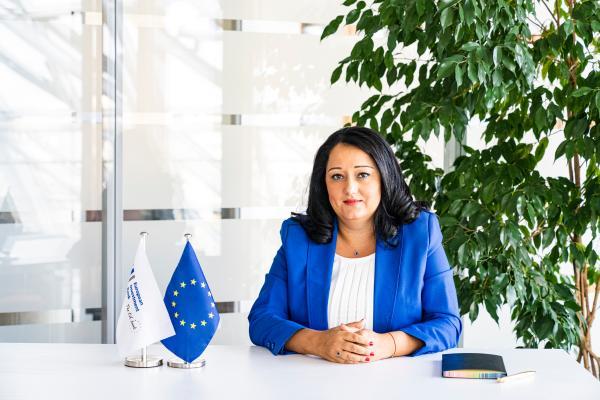On 1st December 2022, EIB Vice-President Lilyana Pavlova participated in the Debate on the energy crisis and consequences for European households during the European Committee of the Regions 152nd Plenary Session.
Check against delivery.

Dear Ladies and Gentlemen,
Let me start by expressing my gratitude for being here today.
We are living in highly uncertain times, with rising energy and food prices and extreme volatility.
European consumers are struggling to pay their bills. Poorer households are being affected disproportionally.
The EU response is strong and needs to be unified to go through this energy crisis.
Rather than rethink our strategic direction, the current war has shown that Europe must invest even more and even faster in the green and digital transitions. The REPowerEU Plan already recognises this, as it builds on the European Green Deal and the Fit for 55 package.
Accelerating the transition through green finance is one of the main drivers of the EIB Group Climate Bank Roadmap 2021-2025. With our goal to support €1 trillion in green investments by 2030 globally, the EIB Group can make a crucial contribution to REPowerEU, strengthening energy security and making Europe less dependent on fossil fuels.
The EIB has a solid track record in supporting the EU’s energy sector, averaging around €10 billion per year over the past decade.
Since the adoption of the Energy Lending Policy in 2019, we have focused our investments in the energy sector in energy efficiency, renewable energy, and electricity network infrastructure, areas where investment needs are the highest.
Now we plan to step up our efforts to support a just, green transition with a group-wide response in support of REPowerEU.
At the end of October, we approved a package of new, targeted EIB Group financing of additional €30 billion over the next five years to support the REPowerEU Plan.
This additional financing will be focused on three pillars: sustainable energy (renewable energy, energy infrastructure); energy efficiency and energy transition; and green innovation (including low-carbon hydrogen).
Let me now focus on energy efficiency.
Energy efficiency will be key to reduce fossil fuel imports and energy bills. Investing in energy efficiency is smart economics.
The EIB Group has developed financial products and advisory services tailored to support energy efficiency investments.
One of the EIB’s main technical assistance facilities is ELENA, launched 13 years ago by the EIB and the European Commission.
ELENA can be used by cities and regions to solve the Energy trilemma: Affordability, Security and Sustainability.
Currently there are 75 projects ongoing. They include cities and regions that are increasing their stock of electric transport, retrofitting their building stock and upgrading their public lighting portfolios. ELENA has an important role as a catalyst, creating the enabling conditions in which more investment flows to projects.
The City of Leuven has been one of the many beneficiaries of ELENA in the Lower Energy Use Via an Extraordinary Network (L.E.U.V.E.N.) project. Since December 2017, ELENA has provided €1.5 million to enable a network of 24 building owners to retrofit and upgrade nearly 100 000 m2 of their building stock, improving the overall energy performance and integrating renewable energy systems. As a result, over €42 million has been invested in sustainable energy solutions, contributing to the city's wider Leuven 2030 carbon neutrality vision.
The EIB has also developed, together with the European Commission, a new model financial instrument – referenced in the REPowerEU communication – which provides a blueprint for public authorities, based on observed best practices and market needs across the EU, to provide comprehensive blended financial (loan or guarantee + grant) and advisory support to energy efficiency and small-scale renewable investments in buildings.
I encourage all cities and regions to consider the support these facilities can offer in order to bring forward the energy transition. To unlock green investments at scale we need to mobilise private finance, which will only happen with the right policy, regulatory and market framework and of course bankable projects.
Thank you very much.